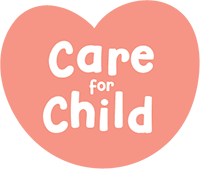"Pre-pregnancy care is the medical attention a woman receives before becoming pregnant. Prenatal care is the medical attention a woman gets while
pregnant. Early and regular prenatal visits with a healthcare provider are critical for the mother and the fetus's health.
Pre-pregnancy care from a health care provider is also essential for a woman to have the healthiest pregnancy possible. This article by
Care for Child will help you understand what prenatal care is and the 3 essential benefits of prenatal care before pregnancy.
What is Prenatal Care?
Prenatal care includes prenatal checkups as well as
prenatal testing. Prenatal care can keep both you and your child healthy. It enables your doctor to detect health problems at an early stage. Many problems can be cured or avoided if addressed early on.
Your doctor will schedule your prenatal visits. However, if you are over 35 years old or your pregnancy is impeded due to a medical condition such as diabetes or high blood pressure, your doctor or nurse will most likely want to see you more frequently. As your due date approaches, you can also expect to see your doctor more regularly.
Why is Pre-Pregnancy Care Important?
Prenatal care is essential for maintaining good health during pregnancy. Your doctor or nurse will monitor your future child's development and perform routine testing to detect and prevent problems. These regular checkups are also a great time to learn how to relieve any discomfort you may be feeling and to ask any other questions about your pregnancy and the birth of your future child.
3 Essential Prenatal Care Benefits Every Mother Must Know
Prenatal care is a procedure that allows you to maintain healthy eating and exercise habits before and
during pregnancy. The primary goal of prenatal care is to provide pregnant women with regular check-ups and to monitor the health of both the mother and the child.
But before you decide on prenatal care, keep these three key benefits in mind.
1. Lower risk of congenital disabilities and complications during pregnancy
The primary role and responsibility of prenatal care are to reduce the risk of congenital disabilities and pregnancy complications to ensure safe labor. Pregnancies are normal and healthy, but detecting a pregnancy complication on rare occasions can be difficult. Prenatal care will take care of you in this situation. Regular consultations with your doctor will assist you in analysing such issues.
2. Analyze the Baby's Development and Growth
You are correct; analysing a baby's growth from the mother's general lookout is difficult. However, prenatal care will allow you to evaluate the baby's growth and development at each stage and assist you with the necessary process.
But once you become a mother, analysing what is essential and safe on the baby's delicate skin becomes a priority. For example, one of the most challenging decisions that comes with becoming a mother is whether to use a
cloth diapers or a regular diaper, and which wipes will be suitable for
newborn babies.
Cloth diapers are made of 100% organic cotton and are gentle on your baby's soft skin. They are also very cost effective in the long run, as you will only need 16 SuperBottoms free size UNO to complete your baby's cloth diapering journey. Click here to read
cloth diapering: everything you need to know!
3. Nutrition Care
Aside from general lifestyle changes, your body's nutritional requirements change. Avoiding certain foods and maintaining a healthy diet for a successful pregnancy is a must. During prenatal visits, your doctor will give you essential dietary advice.
The significance of prenatal care cannot be overstated. You will feel better knowing someone is watching over your child's development. It relieves mental stress and ensures a happy and safe pregnancy.
Bottom Line
It is essential to maintain as much well-being as possible during pregnancy and the postpartum period. Keep your healthcare appointments on track and follow your doctor's instructions for your and your baby's health and safety.
"
